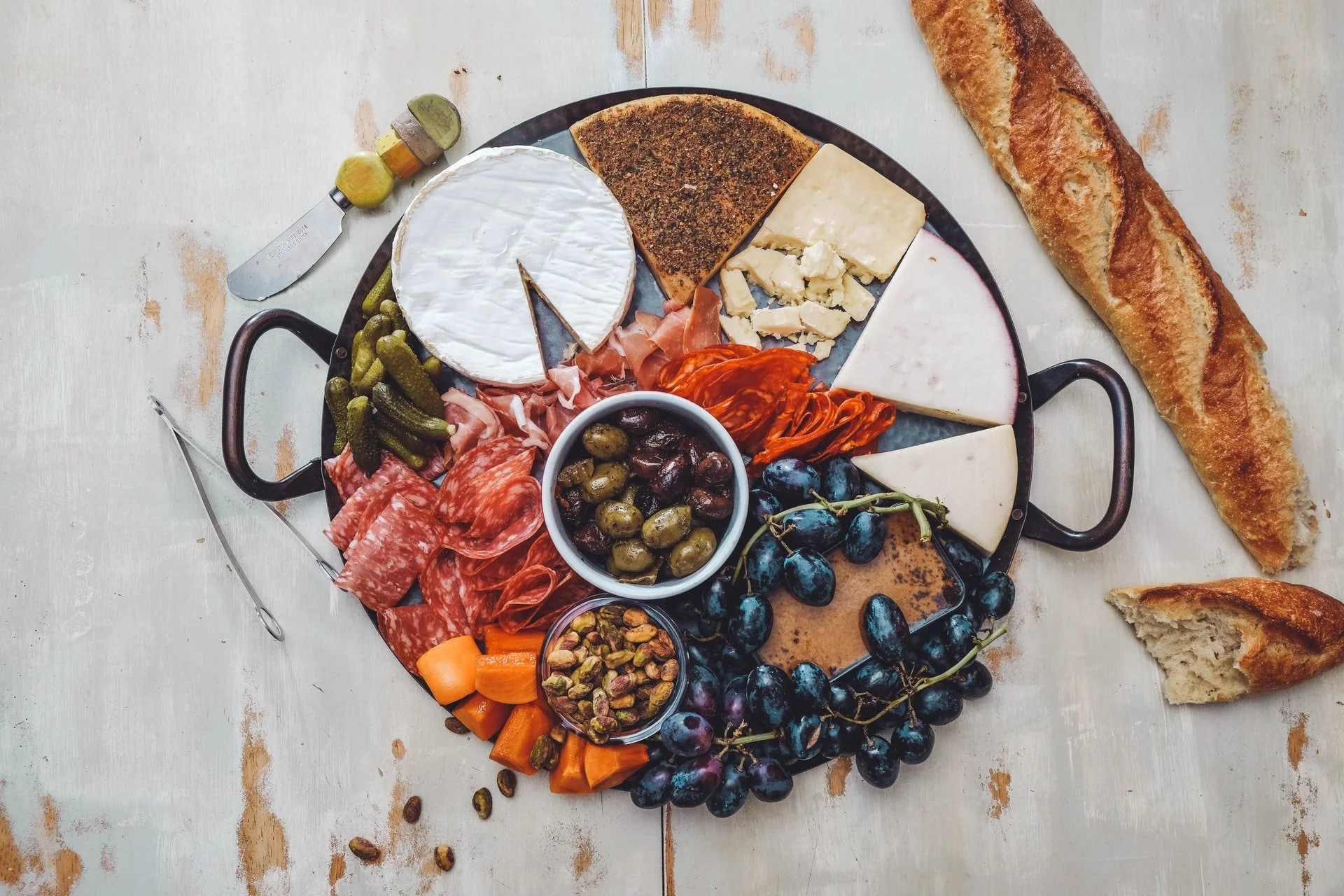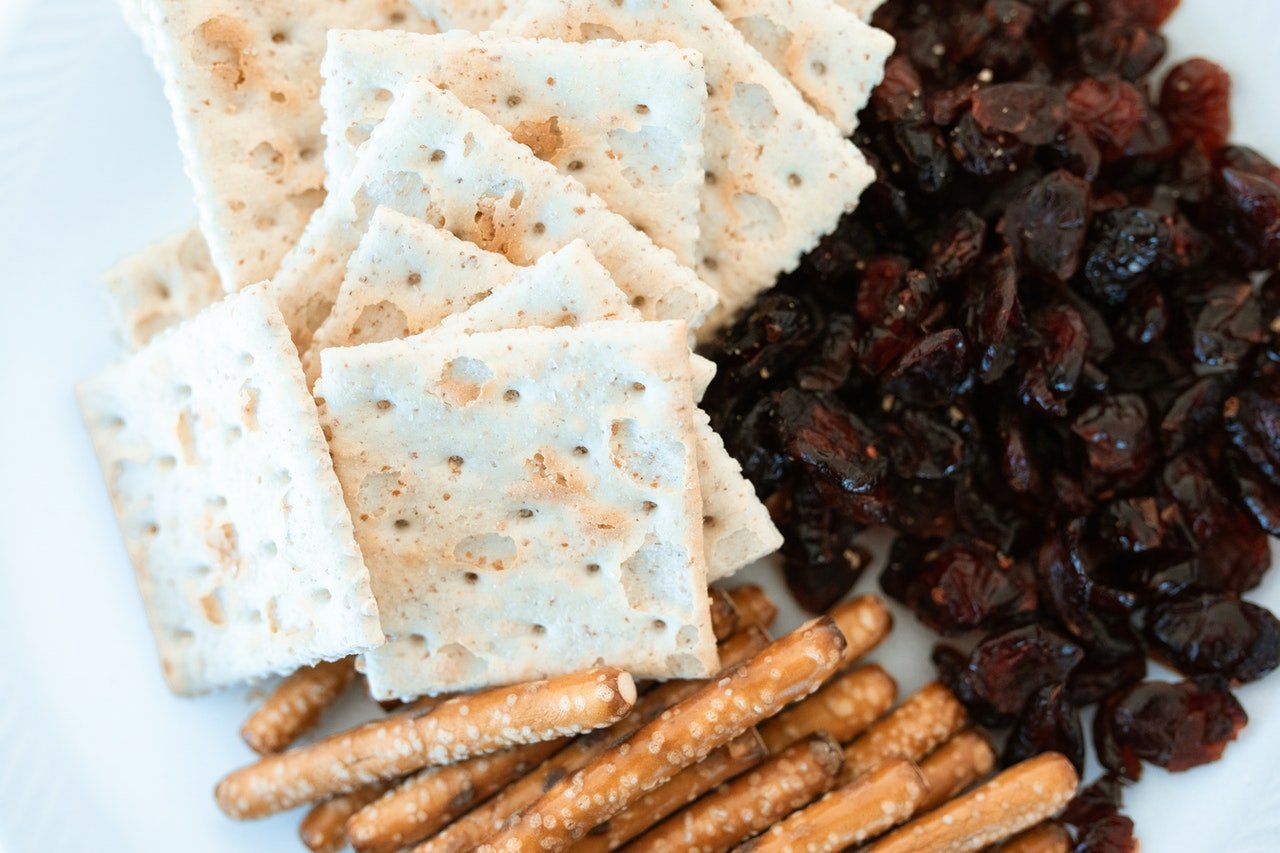How to Create an Instagram-Worthy Cheese and Charcuterie Board
Discover > Texas Mom Blog > How to Create an Instagram-Worthy Cheese and Charcuterie Board
While on the topic of food trends taking over in 2021, we cannot overlook an internet sensation that has been gracing almost every foodie’s gram feed in 2020.
The oh-so photogenic Cheese (how long does cheese last?) and Charcuterie (What wine goes well with charcuterie?) Board.
Gone are the days of serving individual appetizers. All delicious starters now appear together on these snack boards. Meat and cheese (What wine goes well with cheese?) boards are my go-to for easy, no stress entertaining for a small bunch of close friends.
Cheese boards are the embodiment of a full return on investment. They take little time to put together, and man, do they look sharp. So much so, that when you bring one out, your guests are bound to say, “Oh, you didn’t have to do so much for me!”
There are really limitless combinations you can feature on the board. A cheese and charcuterie board also makes for a beautiful centerpiece, colorful and brimming with tasty treats.
Everyone enjoys a good grazing board because there is always something for everyone. The combinations that can be put together, optimize flavor to create a salivating assortment of foods.
While there is a lot of variety to be found on cheese boards, and it may seem like it’s all been just thrown on last minute, there is a method to the madness. And that is to have fun with the components and pile 'em on for that rustic, organic vibe!
What Exactly is a Charcuterie Board?
Traditionally, charcuterie is defined as the process of preparing and serving cured meats. So, the actual term ‘charcuterie’ only refers to meat. With the addition of cheese, the board becomes a charcuterie and cheese platter or tray.
How to Create an Instagram-worthy Cheese and Charcuterie Board
The very first step to creating this perfect snack platter, is to pick the right board and other utensils that you will need to serve.
Choose the Right Serving Board
Size- Typically, boards are 9×13, or can be as big as 12×18.
Wood- If you decide to use a wood board, then teak, maple, cherry, olive, walnut and acacia woods are best. You want to choose a non-porous wood to avoid the absorption of unwanted flavors.
Marble- Marble is also a good choice of board because it is hard and impermeable, not to mention has a smooth clean look to display your ingredients.
Add some pretty dipping bowls and jars
Size- Look for bowls and jars that are about the same size and have an opening wide enough to hold cutlery.
Design- Try to stay consistent with the design so the board looks uniform.
Don’t forget Tiny Cutlery
Butter knives- for cutting cheeses or meats
Spoons- for jars/bowls and picking up nuts (how long do nuts last?)
Forks- for picking up meats, fruits, and cheeses
What Kind of Meat Goes on a Cheese and Charcuterie Board?
The platter usually focuses on cured meats, whole muscle cuts and cured sausage. Consider any of the following choices for your cheese and charcuterie platter:
Proscuitto
Salami, Nola Salami and Peppered Salami
Spicy Chorizo
Soppressata
Sausages
We like to use uncured, nitrate-free versions of these as a healthier option. Most grocers carry uncured meat. You can find them in the health section of the grocery store.
How much meat to serve?
Typically, plan to include about 2oz of meat for every person who will be eating.
Next, What Cheeses are Perfect for a Cheese and Charcuterie Board?
We recommend picking 4 to 5 cheeses for the board to have a good collection of tastes and textures. Here is an idea of the cheeses you can include:
Blue Cheese – pairs best with dried fruit (how long does dried fruit last?) and gives the board that gorgeous blue tone. Many people may find blue cheese a tad bit strong, so its a good idea to have other mild flavored ones on there too.
Smoked Gouda – pairs best with cold cuts of meat
White Cheddar
Aged Cheddar
Smoked Mozzarella
Parmesan
Plain Cheese curds
Goat Cheese – pairs best with olives and nuts
Boursin garlic herb spread
Provolone
Fromager D’Affinois
Havarti
Brie – Its beautiful white circular form stands out on the board. Keep it out of the refrigerator at least an hour before you are going to serve.
You may choose to pre-slice the cheese before placing it on the board, but its more organic and wholesome to have the wedge or wheel on the board. Cheesemakers and Mozzarella Company are local Texan cheese mongers you want to try!
How Much Cheese to Serve?
Depending on the number of people eating, and the course of the meal, you may choose to serve a standard wedge or log or circle of 4-6 ounces each for every 2-3 people served.
But always err on the side of caution and serve more, as there can never be too much cheese!
Let’s Talk Crackers and Breads!
Crackers and bread (how long does bread last?) surely need to make an appearance on the Cheese and Charcuterie board. Think sourdough, baguettes, breadsticks, rye and multigrain breads.
You can have a couple of different shapes and flavors of crackers to go with the condiments on the board. Cassava crackers, Almond flour (how long does almond flour last?) crackers, whole wheat crackers or Rosemary crackers awesome good options you can look at. Check out The Sourdough Project and The Green Cart Pantry for some crack n crunch!
Condiments and Sauces
A nice homemade fig jam (how long does fig jam last?) is definitely something that should be present on a cheese and charcuterie board. Blueberry jam and cranberry jam also pair beautifully with some of the cheeses you have there. Visit Salsa Basket for their mouthwatering collection. Other condiments that you can add are:
Hummus, tahini (how long does tahini last?), olive tapenade, mustard (how long does mustard last?), and raw honey.
Cultured Heat and Kendra's Kreations in Texas are well known for their offerings on condiments.
What Fruits and Vegetables Should Feature on a Cheese and Charcuterie Board?
Fresh and Dried Fruit
Foods give your platter a burst of freshness and lightness that offsets the heavier and saltier meats and cheeses. best fresh fruits you can add are:
Grapes, blueberries, strawberries, raspberries, pears, mangoes, dates, cherries (how long do cherries last?), figs, dried apricots (how long do dried apricots last?), dried cranberries (how long do dried cranberries last?) and raisins (how long do raisins last?).
Vegetables
Again, vegetables will provide color and a change of palate between tasting cheeses and meats. You can add:
Rocket leaves, Artichokes (What wine goes well with artichokes?), Asparagus, Celery sticks, Bell peppers sticks of different colors, Roasted bell peppers, Mini pickles, Seedless Olives.
Roasted nuts: pistachios, walnuts, roasted almonds (how long do almonds last?), and pecans.
How to Assemble a Cheese and Charcuterie board?
A Pro-tip to assembling the platter is to do it at the spot you plan to serve. Filled boards can be tricky to lift and move, so gather all your components and start putting it together at the table! Assemble the cheeses first. Place them far apart on the board to make room for other ingredients. Wedge a small knife in soft cheeses (What wine goes well with soft cheeses?).
the meats go on next. Slice and fold 'em any way you like. Meats, just like the cheeses should be kept apart from each other to give a more uniform appearance.
Fill your jars and bowls with the condiments you have chosen and place them on different sides of the board.
Put out the bread and crackers, fill the empty spaces with clusters of fruit and veggies, and handful of nuts. This will give your board a very generous and abundant look.
Let the board reach room temp
Before serving, let the board sit out for about 1 hour to reach room temperature. This will give it optimal flavor. Then enjoy!
If you still want to get some hands on practice on how to create an Instagrammable Cheese and Charcuterie board, head on to this Make and Take event happening on 30th January, 2021 at the Central Market Cooking School!










